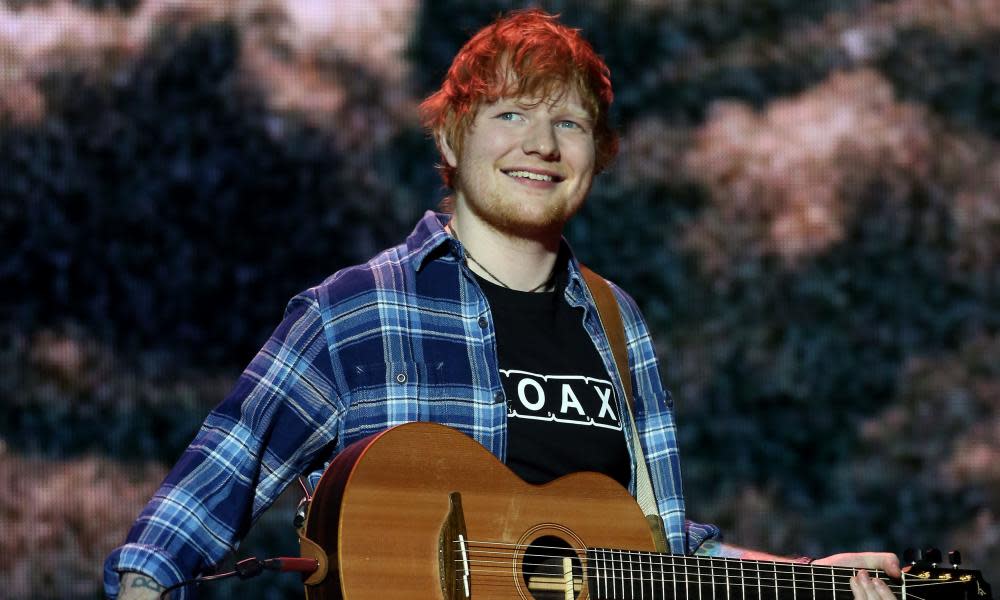Ed Sheeran: the man most likely to send us to sleep

There is something rather lovely in finding that, as adults, we still choose to send ourselves to sleep with a lullaby – even if it is more likely to be Ed Sheeran’s hit Galway Girl than Twinkle Twinkle Little Star.
A new study by researchers at the University of Sheffield, published in the open-access journal PLOS ONE, sought to discover how people use music to help them get to sleep. Of the 651 respondents, 62% reported listening to music to drop off, claiming they believed that it stimulated sleep and allowed them to shut out external distractions.
It also revealed a diverse range of choices, with respondents citing 545 artists from 14 genres, with Sheeran one of the most often referenced, along with Bach, Mozart, Brian Eno, Coldplay and Chopin.
The physiological and psychological effects of music in lulling us to sleep is not wholly understood, although we know it works on the parasympathetic nervous system and can lower heart and respiration rates, as well as blood pressure.
For those wishing to take up music as a sleep aid, it can take around three weeks to achieve its full effect. The Sleep Foundation, a US not-for-profit organisation that promotes understanding of sleep and sleep disorders, also recommends choosing a style of music that is familiar to you, and preferably one that is relatively slow – around 60 to 80 beats a minute.
Some music has been specifically devised for sleep. In 2015, composer Max Richter released Sleep, an album of compositions for strings, organ, vocals, synths and electronics, running at eight and a half hours in length and developed with David Eagleman, a neuroscientist.
The DJ and producer Tom Middleton attempted something similar, if more electronic, earlier this year. Sleep Better drew on Middleton’s experience of intense insomnia and playing chill-out festivals, and involved collaboration with cognitive neuroscientists. He has since trained as a sleep-science coach.
Sleep advisers often say that jazz, classical and folk are the most rewarding genres for those in search of sleep, suggesting that Sheeran might be an unusual choice. But the Sheffield study is not the first time he has been said to be conducive to slumber.
When streaming service Spotify analysed its users’ Sleep playlists, it found Sheeran was the most commonly chosen artist, although this is probably down to his ubiquity rather than some hitherto unexplored somnolent quality in his music. In fact, his three most popular tracks on Spotify all hover slightly above the ideal bpm rate for sleep: Perfect comes in at 95bpm, Shape of You at 96bpm and Happier at 90bpm. Still they are notably slower than the 117-122 bpm that has characterised most popular music from the 1940s until today.
Whether Sheeran might seek to exploit this has yet to be seen – although considering Galway Girl was a blatant attempt to tap into the global Irish bar market, we should perhaps brace ourselves for his cover of Baa Baa Black Sheep.

 Yahoo News
Yahoo News 
